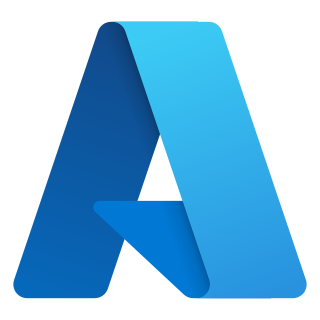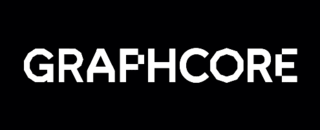
Microsoft Corporation is an American multinational corporation and technology company headquartered in Redmond, Washington. Microsoft's best-known software products are the Windows line of operating systems, the Microsoft 365 suite of productivity applications, and the Edge web browser. Its flagship hardware products are the Xbox video game consoles and the Microsoft Surface lineup of touchscreen personal computers. Microsoft ranked No. 14 in the 2022 Fortune 500 rankings of the largest United States corporations by total revenue; and it was the world's largest software maker by revenue in 2022 according to Forbes Global 2000. It is considered one of the Big Five American information technology companies, alongside Alphabet, Amazon, Apple, and Meta.
Microsoft Research (MSR) is the research subsidiary of Microsoft. It was created in 1991 by Richard Rashid, Bill Gates and Nathan Myhrvold with the intent to advance state-of-the-art computing and solve difficult world problems through technological innovation in collaboration with academic, government, and industry researchers. The Microsoft Research team has more than 1,000 computer scientists, physicists, engineers, and mathematicians, including Turing Award winners, Fields Medal winners, MacArthur Fellows, and Dijkstra Prize winners.
Microsoft is a multinational computer technology corporation. Microsoft was founded on April 4, 1975, by Bill Gates and Paul Allen in Albuquerque, New Mexico. Its current best-selling products are the Microsoft Windows operating system; Microsoft Office, a suite of productivity software; Xbox, a line of entertainment of games, music, and video; Bing, a line of search engines; and Microsoft Azure, a cloud services platform.
Microsoft engineering groups are the operating divisions of Microsoft. Starting in April 2002, Microsoft organised itself into seven groups, each an independent financial entity. In September 2005, Microsoft announced a reorganization of its then seven groups into three. In July 2013, Microsoft announced another reorganization into five engineering groups and six corporate affairs groups. A year later, in June 2015, Microsoft reformed into three engineering groups. In September 2016, a new group was created to focus on artificial intelligence and research. On March 29, 2018, a new structure merged all of these into three.

The Linux Foundation (LF) is a non-profit organization established in 2000 to support Linux development and open-source software projects. In addition to providing a neutral home where Linux kernel development can be fostered, the LF is dedicated to building sustainable ecosystems around open-source projects to accelerate technology development and encourage commercial adoption.
Wrike, Inc. is an American project management application service provider based in San Jose, California. Wrike also has offices in Dallas, Tallinn, Nicosia, Dublin, Tokyo, Melbourne and Prague.
Improbable Worlds Limited is a multinational technology company founded in 2012 and headquartered in London, England. It makes metaverse infrastructure and applications, as well as simulation software for video games and corporate use. It reported revenues of £78m in fiscal 2022, up 260% over 2021.

GitHub is a developer platform that allows developers to create, store, manage and share their code. It uses Git software, providing the distributed version control of Git plus access control, bug tracking, software feature requests, task management, continuous integration, and wikis for every project. Headquartered in California, it has been a subsidiary of Microsoft since 2018.

Microsoft Azure, often referred to as Azure, is a cloud computing platform run by Microsoft. It offers access, management, and the development of applications and services through global data centers. It also provides a range of capabilities, including software as a service (SaaS), platform as a service (PaaS), and infrastructure as a service (IaaS). Microsoft Azure supports many programming languages, tools, and frameworks, including Microsoft-specific and third-party software and systems.

Figure Eight was a human-in-the-loop machine learning and artificial intelligence company based in San Francisco.

Databricks, Inc. is an American software company founded by the original creators of Apache Spark. Databricks develops a web-based platform for working with Spark, that provides automated cluster management and IPython-style notebooks. The company develops Delta Lake, an open-source project to bring reliability to data lakes for machine learning and other data science use cases.

GitLab Inc. is an open-core company that operates GitLab, a DevOps software package that can develop, secure, and operate software. The open-source software project was created by Ukrainian developer Dmytro Zaporozhets and Dutch developer Sytse Sijbrandij. In 2018, GitLab Inc. was considered to be the first partly-Ukrainian unicorn.
Semantic Scholar is a research tool for scientific literature powered by artificial intelligence. It is developed at the Allen Institute for AI and was publicly released in November 2015. Semantic Scholar uses modern techniques in natural language processing to support the research process, for example by providing automatically generated summaries of scholarly papers. The Semantic Scholar team is actively researching the use of artificial intelligence in natural language processing, machine learning, human–computer interaction, and information retrieval.

OpenAI is a U.S. based artificial intelligence (AI) research organization founded in December 2015, researching artificial intelligence with the goal of developing "safe and beneficial" artificial general intelligence, which it defines as "highly autonomous systems that outperform humans at most economically valuable work". As one of the leading organizations of the AI spring, it has developed several large language models, advanced image generation models, and previously, released open-source models. Its release of ChatGPT has been credited with starting the AI spring.

Graphcore Limited is a British semiconductor company that develops accelerators for AI and machine learning. It has introduced a massively parallel Intelligence Processing Unit (IPU) that holds the complete machine learning model inside the processor.
The Azure Kinect DK is a discontinued developer kit and PC peripheral which employs the use of artificial intelligence sensors for computer vision and speech models, and is connected to the Microsoft Azure cloud. It is the successor to the Microsoft Kinect line of sensors.
Microsoft, a technology company historically known for its opposition to the open source software paradigm, turned to embrace the approach in the 2010s. From the 1970s through 2000s under CEOs Bill Gates and Steve Ballmer, Microsoft viewed the community creation and sharing of communal code, later to be known as free and open source software, as a threat to its business, and both executives spoke negatively against it. In the 2010s, as the industry turned towards cloud, embedded, and mobile computing—technologies powered by open source advances—CEO Satya Nadella led Microsoft towards open source adoption although Microsoft's traditional Windows business continued to grow throughout this period generating revenues of 26.8 billion in the third quarter of 2018, while Microsoft's Azure cloud revenues nearly doubled.

IBM Cloud is a set of cloud computing services for business offered by the information technology company IBM.

Ampere Computing LLC is an American fabless semiconductor company based in Santa Clara, California that develops processors for servers operating in large scale environments. Ampere also has offices in: Portland, Oregon; Taipei, Taiwan; Raleigh, North Carolina; Bangalore, India; Warsaw, Poland; and Ho Chi Minh City, Vietnam.

The Open Source Security Foundation (OpenSSF) is a cross-industry forum for collaborative improvement of open-source software security. Part of the Linux Foundation, the OpenSSF works on various technical and educational initiatives to improve the security of the open-source software ecosystem.











